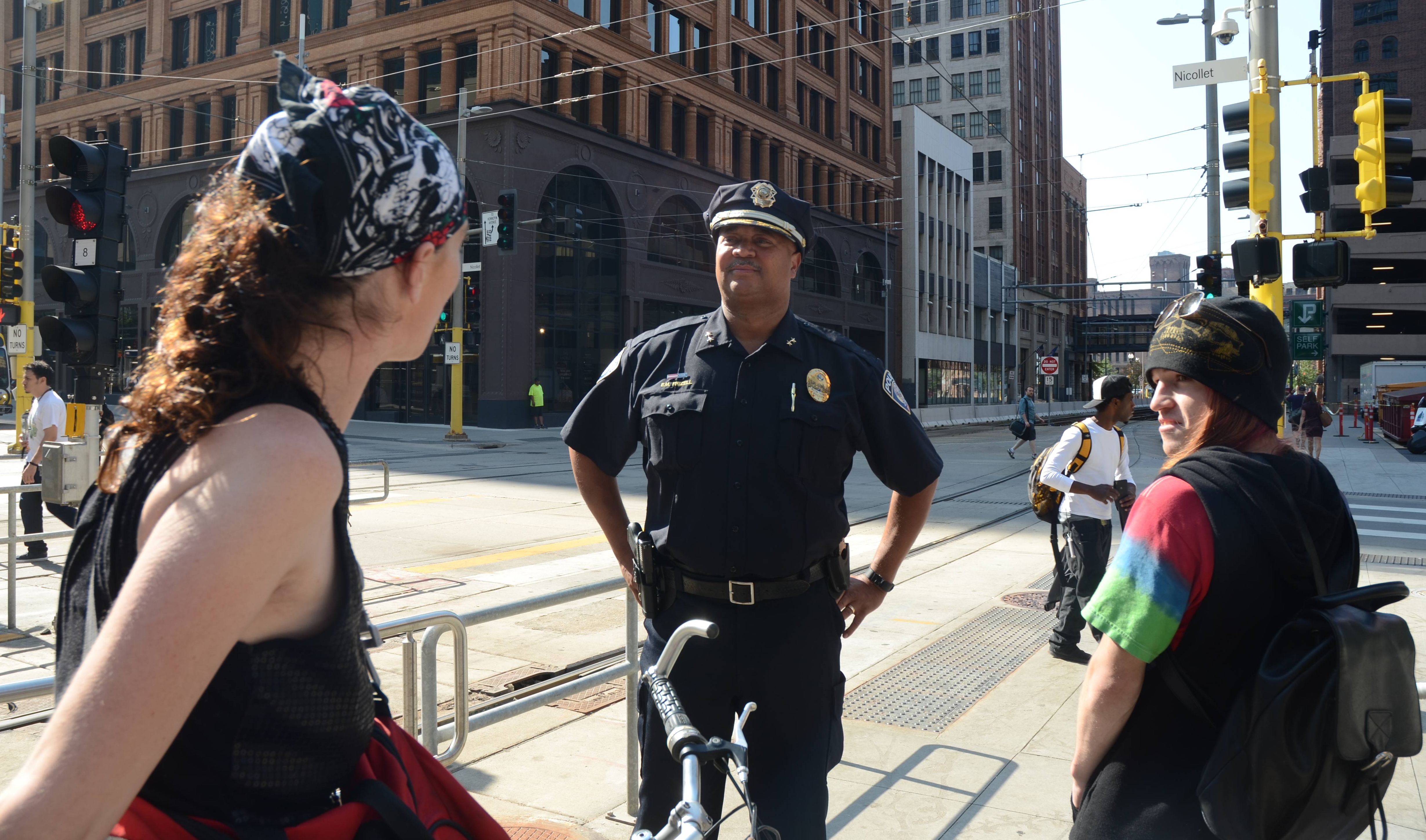 Metro Transit Police Chief Eddie Frizell has a rich law enforcement and military background.
Metro Transit Police Chief Eddie Frizell has a rich law enforcement and military background.
Before joining Metro Transit in August, he spent 26 years with the Minneapolis Police Department. There, he filled numerous roles, including deputy chief of 911 patrol, crisis negotiator, mounted patrol and inspector of the First Precinct, which includes downtown Minneapolis. Frizell also served as a plain clothes officer and member of the department’s SWAT team.
A 29-year Army veteran, Frizell has served in Bosnia (2003-04), Iraq and Kuwait (2011-12). During his last tour, he was the squadron commander of a Minnesota Army National Guard armored cavalry unit that traveled more than 1 million miles through Iraq, the largest U.S. Army logistical move since World War II.
Frizell, a father of three, also holds master’s degrees from the United States Army War College and Augsburg College, and a bachelor’s degree from the University of Iowa. He is a graduate of the FBI National Academy and the Senior Management Institute for Police at Boston University.
An Iowa native, Frizell’s resume is also notable for this reason: he was a two-time state champ jazz band drummer.
As he settles into his new role, Frizell answered a few questions about his experience and vision for the department's future.
How did you choose a career in law enforcement?
In the early 1990s, the Iowa farm industry was in decline, and the area where I lived offered few promising job opportunities. I gathered my meager belongings and moved to Minneapolis where I started working in local security. I was later accepted into the Minneapolis Police Cadet program. When I graduated and became a police officer, I felt I had truly found my calling.
Why did you want to lead the Metro Transit Police Department?
The department is a “diamond in the rough.” There are outstanding law enforcement professionals and support staff. With additional resources and leadership, it can and will be one of the greatest transit police organizations in the country. I wanted to be a part of that and am honored and humbled to serve as the department’s chief.
What are the department’s strengths and how do you plan to build on them?
The department’s greatest strengths are its people! As I begin in this new role, I plan to build strong relationships inside and outside of the organization and spend a lot of time listening. Identifying subject matter experts and hearing from individuals who are not afraid to challenge my assumptions will be especially important. I’ve made some of my best decisions after listening to people who disagreed with me.
What is your vision for the department?
I want the department to be known throughout the country as a cutting-edge, innovative and dynamic organization. I also expect honesty, accountability, integrity and professionalism. The cornerstones of procedural justice, community-oriented policing and fairness will be the norm.
Outside the organization, community engagement and community-oriented policing are at the core of my philosophy. It’s my experience that people who call 911 are in the midst of a significantly stressful and emotional event. Officers who cultivate community relationships and enhance their cultural competency are better prepared to respond appropriately to these situations and are perceived in a more positive and trustworthy manner.
What are your proudest achievements?
I’ve had the honor and privilege to serve and protect for over 26 years. My career has given me the ability to raise a medical school student, as well as a soon-to-be West Point grad. I’ve always considered myself a servant leader, and the ability to lead such selfless, brave men and women in such an honorable profession has been my proudest achievement.
Learn more about the Metro Transit Police Department's leadership